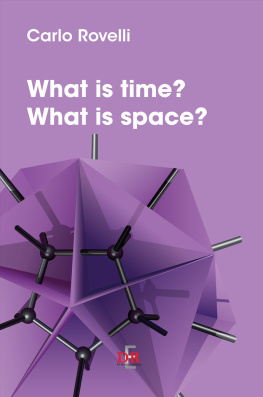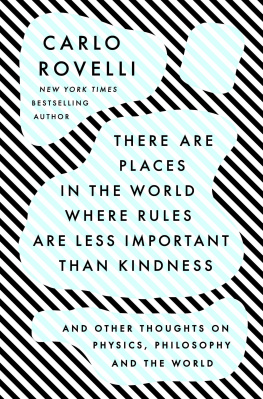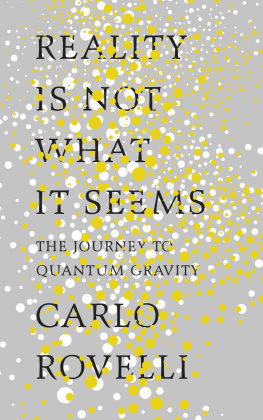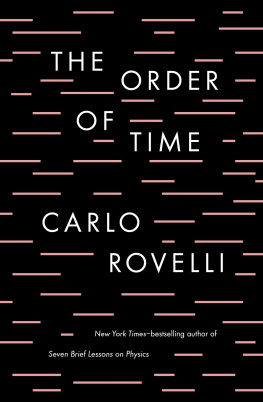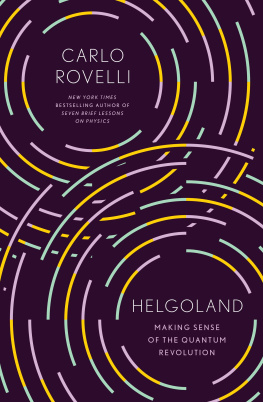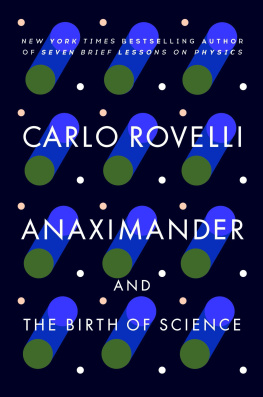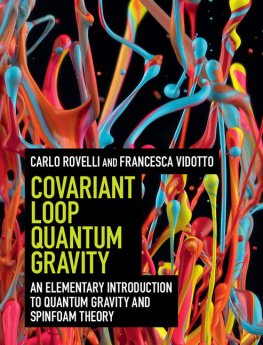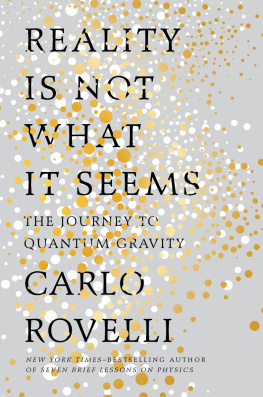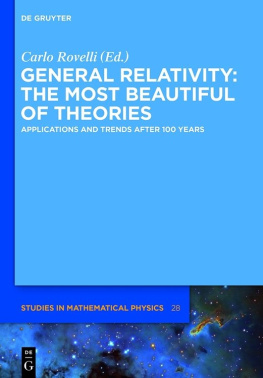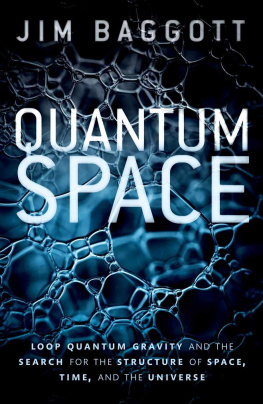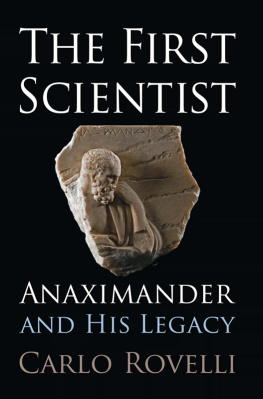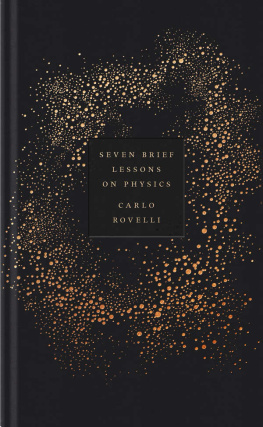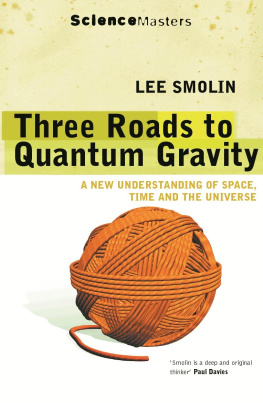A novel image of the world is taking shape in fundamental physics: a world without time and without space. Time and space as we know them will disappear from the scientific picture of the world, in the same way in which the centre of the universe did.
In this agile text, derived from a long interview, Carlo Rovelli, theoretical physicist and pioneer of modern quantum gravity, describes his personal and intellectual journey, starting from the rebellion of his young years and the discovery of the enchanting adventure of theoretical research, till the vertiginous hypotheses of todays physics. In a simple language, Rovelli introduces us to a space made of grains, a time which is the result of our ignorance, to hot black holes and how to think about the beginning of the universe.
But he also discusses the value, the risks, and the fascination of this quest. Science, for Rovelli, is a continuous exploration of new ways of thinking the world, the desire of looking beyond the hill and seeing the world always with new eyes, the choice of never giving up dreams.
Introduction
I have devoted a large part of my life to scientific research. But this has been a rather late-born passion. As a young man, the entire world interested me, but not science in particular.
I was born and grew up in Verona, in a quiet family. My father, a man of rare intelligence, was an engineer who ran a small business. I got from him the pleasure of trying to understand the world in an intelligent way. My mother, a real Italian mother full of excessive love for her only child, helped me with the investigations I did for elementary school, and stimulated my curiosity for discovery and learning.
I attended the classical lyceum of Verona. We studied more Greek and Latin than mathematics. The school offered rich cultural incentives, but it was pretentious and provincial, closed in its attempt to safeguard the privileges and the identity of the small provincial bourgeoisie. Several of the teachers had been fervent fascists before the war, and had remained so in the secret of their heart. It was the sixties and seventies, decades of conflict between generations. The world changed rapidly and most adults had difficulties to accept the changes. They dug themselves in, around defensive and sterile positions. I had little trust in the world of adults and even less in my teachers. I clashed frequently with them and with all figures of authority.
My adolescence became a period of revolt. I did not recognise the values expressed by the world around myself. It was also a period of great confusion in which nothing seemed to be certain anymore. The only thing that seemed clear to me was the feeling that the world I saw was very different from what seemed just and right to me. I wanted to become a bearded vagabond, to stay away from a world that I did not like. But I also read voraciously and the books were telling me about other worlds and different ideas. I felt there were wonderful treasures hidden in every book I had not yet read.
During my University years in Bologna, my own confusion and my own conflict with the adult world made contact with the common course of the generation to which I belong. It was the time we all wanted to change the world. To transform it into a more gentle and a less unfair place. There was a desire to try new forms of living and loving. We experimented with new ways to live together, we wanted to try everything; we travelled on the road, with the mind, and with our dreams, we endlessly fell in love and endlessly talked. We wanted to learn to see things with different eyes. Sometimes there was great distress, other times we felt at the dawn of a wonderful new world.
We lived on dreams. We travelled a lot in search of new friends and new ideas. At twenty, I decided to go on a long trip by myself, to wander around the world. I said I wanted to look for adventure and to seek for truth. Nowadays, approaching fifty, I think that it was a good choice. Obviously, I smile about my ingenuousness at the time, but I feel I am still following an adventure that began in those days. The path has not always been easy, but the foolish hopes and the unbridled dreams have not deceived me: it was sufficient to have the courage to follow them.
With a group of friends we set up one of the free radios of those days, Radio Alice, in Bologna. It was an open microphone for everybody, where experiences and dreams were exchanged. With two of those friends we wrote a book telling the story of this Italian rebellion of the end of the seventies.
But the dreams of revolution died quickly and order got the upper hand; one does not change the world so easily.
Thus halfway through my university years I found myself even more confused, saddened by the sensation that dreams I had shared with my contemporaries of half the planet were already fading, and with no perspective on what to do next with my life. The idea to join the race up the social ladder, a career, to earn a bit more money and grab a crumb of power seemed too sad to me and I did not feel up to it. But there was still the world to explore and behind the hills I imagined always boundless horizons.
Scientific research has come towards me at this point as a boundless space of liberty, and an extraordinary adventure, old and new. I studied because I had to do exams, and to delay the compulsory Italian military service (at the end I just burned the draft card), but the things I studied aroused my curiosity more and more and fascinated me ever more. In the third year of the undergraduate Physics program, one meets the new physics of the twentieth century: quantum mechanics and Einsteins theory of relativity. These are extraordinary conceptual revolutions in which the view of the world profoundly changes. Earlier ideas are challenged, even the most revered ones. One discovers that the world is not at all as one thought it to be, one learns to see things with different eyes. It was an extraordinary mind travel.
I slid from a cultural revolution into a revolution of thought, almost without realising it.
I discovered a kind of thinking, scientific thinking, which establishes rules to understand the world, and then challenges them and changes them. This freedom, this free path to the pursuit of knowledge, fascinated me. It was just curiosity and perhaps what Federico Cesi, the friend of Galileo who had the vision of modern science, called the natural desire to know, which made me find myself, almost without noticing it, immersed in the problems of theoretical physics.

